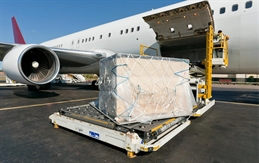
The International Air Transport Association (IATA) called on governments to further support the safe carriage of lithium batteries by developing and implementing global standards for screening, fire-testing, and incident information sharing.
In a statement, the trade organization of the world's airlines said as with many products shipped by air, effective standards, globally implemented, are needed to ensure safety.
"The challenge is the rapid increase in global demand for lithium batteries (the market is growing 30% annually) bringing many new shippers into air cargo supply chains. A critical risk that is evolving, for example, concerns incidents of undeclared or mis-declared shipments," IATA said.
It noted that it has "long called" for governments to step-up enforcement of safety regulations for the transport of lithium batteries.
It added that this should include stiffer penalties for rogue shippers and the criminalization of egregious or willful offenses.
IATA also asked governments to shore up those activities with additional measures including the development of safety-related screening standards and processes for lithium batteries; and development of specific standards and processes by governments to support the safe transport of lithium batteries, like those that exist for air cargo security, will help provide an efficient process for compliant shippers of lithium batteries.
The organization noted how it is critical that these standards and processes be "outcome based and globally harmonized," as it asked governments to also develop and implement a fire-testing standard that addresses lithium battery fire containment.
"Safety data is critical to understanding and managing lithium battery risks effectively. Without sufficient relevant data, there is little ability to understand the effectiveness of any measures. Better information sharing and coordination on lithium battery incidents among governments and with the industry is essential to help manage lithium battery risks effectively," it added, noting that the steps noted would support significant initiatives by airlines, shippers, and manufacturers to ensure lithium batteries can be carried safely.
More regulations, standards sought
Meanwhile, IATA also wants governments to provide updates to the Dangerous Goods Regulations and the development of supplementary guidance material; as well as launch a Dangerous Goods Occurrence Reporting Alert System that provides a mechanism for airlines to share information on events involving undeclared or misdeclared dangerous goods.
It also urged governments to develop a Safety Risk Management Framework specifically for the carriage of lithium batteries.
"Airlines, shippers, manufacturers, and governments all want to ensure the safe transport of lithium batteries by air. It's a joint responsibility. The industry is raising the bar to consistently apply existing standards and share critical information on rogue shippers. But there are some areas where the leadership of governments is critical," said Willie Walsh, IATA's director-general.
"Stronger enforcement of existing regulations and the criminalization of abuses will send a strong signal to rogue shippers. And the accelerated development of standards for screening, information exchange, and fire containment will give the industry even more effective tools to work with," Walsh added.



